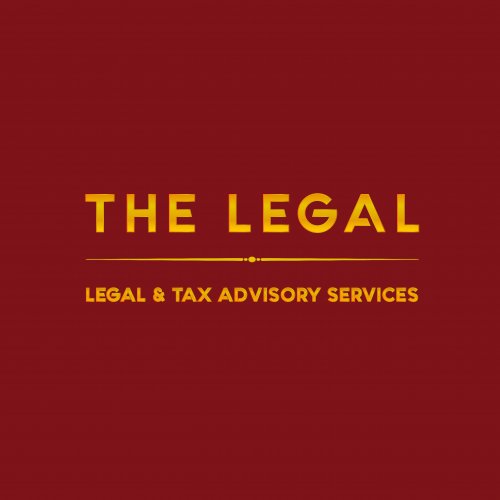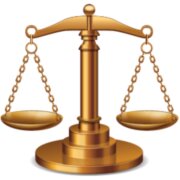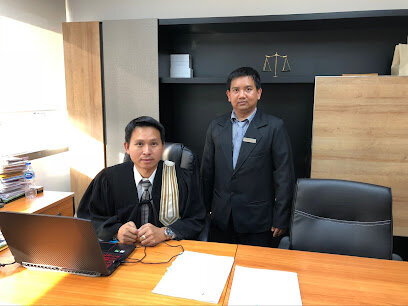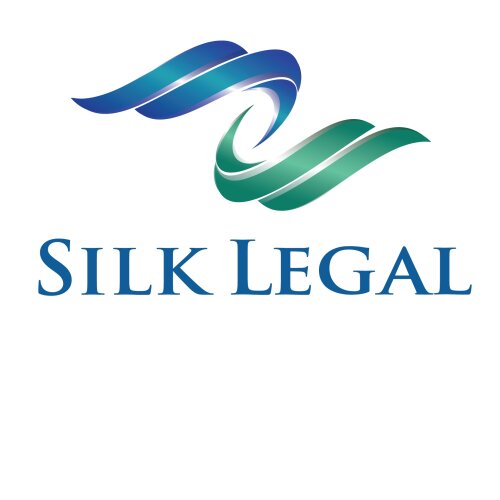Best Media, Technology and Telecoms Lawyers in Bangkok
Share your needs with us, get contacted by law firms.
Free. Takes 2 min.
List of the best lawyers in Bangkok, Thailand
Legal guides written by Smart Legal Solutions:
- Main Legal Measures to Protect Foreign Investment in Thailand
- The importance of the geographical indications for the Thai economy
Legal guides written by Mahanakorn Partners Group Co., Ltd:
- Thailand Strengthens Anti-Money Laundering Laws with New Amendments
- Recent Updates to Thailand’s Long-Term Resident (LTR) Visa and SMART Visa Programs
- Managing Risks in Public-Private Partnership Projects
About Media, Technology and Telecoms Law in Bangkok, Thailand
Bangkok, as the bustling capital of Thailand, is not only the center of commerce and culture but also a hub for media, technology, and telecommunications. With rapid digital transformation, the intersection of law and technology has grown significantly. The legal framework for media, technology, and telecommunications is primarily influenced by national policies aimed at fostering innovation, protecting consumer rights, and maintaining public order. Key areas within this field include broadcasting, digital content, telecommunications services, internet regulation, data protection, and e-commerce. As a vibrant and forward-looking city, Bangkok provides a conducive environment for industry growth, albeit within a complex legal landscape that requires careful navigation by businesses and individuals alike.
Why You May Need a Lawyer
The complexities of media, technology, and telecommunications laws in Bangkok can pose challenges for businesses and individuals. Here are common situations where legal advice may be necessary:
- Regulatory Compliance: Companies in these sectors must comply with numerous regulations, including licensing requirements, data protection laws, and electronic transactions legislation.
- Intellectual Property Protection: As a creator or business, you may need assistance in protecting copyrights, patents, and trademarks in the digital space.
- Contractual Agreements: Drafting, reviewing, and negotiating contracts for technology services, content distribution, or partnership agreements often require legal expertise.
- Dispute Resolution: Legal support might be essential in case of disputes related to telecommunications services, content rights, or privacy issues.
- Data Privacy Concerns: Navigating the Personal Data Protection Act (PDPA) to ensure the safeguarding of personal information and compliance with data privacy laws.
- Technological Innovation: Advising startups on legal frameworks for emerging technologies like fintech, AI, or IoT.
Local Laws Overview
Understanding the local legal environment can better prepare you to manage challenges in media, technology, and telecommunications in Bangkok. Key laws include:
- Telecommunications Business Act: Governs licensing and regulation of telecommunications services and operators in Thailand.
- Computer Crimes Act: Addresses illegal activities involving computer systems or online environments, such as hacking or spreading malware.
- Personal Data Protection Act (PDPA): Sets out rules and requirements for data collection, processing, and consent to protect individuals' privacy.
- Electronic Transactions Act: Facilitates secure electronic transactions and digital commerce, providing a legal framework for e-signatures and contracts.
- Copyright Act: Offers protection for original works, including digital content, software, and multimedia works.
- Broadcasting Act: Regulates television and radio broadcasts, including licensing and content standards.
Frequently Asked Questions
What are the licensing requirements for starting an internet service provider in Bangkok?
To start an internet service provider, you must secure a telecom business license from the National Broadcasting and Telecommunications Commission (NBTC). The requirements include fulfilling technical, financial, and operational criteria set by the NBTC.
Is user data privacy protected under Thai law?
Yes, user data privacy is protected under the Personal Data Protection Act (PDPA), which outlines how personal data should be collected, used, disclosed, and processed responsibly by businesses.
How can I protect my digital content from unauthorized use?
Protect your digital content by registering copyrights and ensuring proper legal contracts are in place for licensing and distribution. Intellectual property laws in Thailand can help safeguard your creations.
What constitutes a violation of the Computer Crimes Act?
Violations include unauthorized access to computer data or systems, alteration, deletion, or widespread dissemination of data, spreading false information, or activities related to cybercrime.
Can foreign companies invest in Thailand's technology sector?
Yes, foreign companies can invest in Thailand's technology sector, but they must comply with the Foreign Business Act and possibly seek approval from the Board of Investment, which offers incentives for certain categories of investments.
What should be included in a technology service agreement?
A technology service agreement should include scope of services, performance metrics, payment terms, intellectual property rights, confidentiality clauses, and dispute resolution mechanisms.
How is the Thai government influencing the telecom industry?
The government, through the NBTC, regulates and promotes the development of the telecom industry, overseeing competition, service standards, and expansion of communication networks to enhance connectivity.
Are there any restrictions on the content published by digital media companies?
Yes, content published must adhere to the laws, such as the Criminal Code and Computer Crimes Act, ensuring it does not harm public order, reflect obscene material, or defame individuals.
How does the Electronic Transactions Act impact e-commerce businesses?
The Electronic Transactions Act provides a legal framework for conducting business electronically, ensuring the validity of e-contracts and e-signatures, thus facilitating digital commerce.
What legal recourse is available in case of a telecommunications service dispute?
Parties can resolve disputes through negotiation, or if needed, escalate to the Telecommunications Case Division at the Central Administrative Court, which specializes in telecom-related cases.
Additional Resources
For further assistance or information, consider reaching out to the following organizations and resources:
- National Broadcasting and Telecommunications Commission (NBTC): The regulatory authority overseeing the telecom industry.
- Department of Intellectual Property (DIP): Responsible for intellectual property registration and protection information.
- Electronic Transactions Development Agency (ETDA): Supports electronic transactions and contributes to cyber security policies.
- Thailand Board of Investment (BOI): Provides guidance and incentives for foreign investment in the technology sector.
- Ministry of Digital Economy and Society (MDES): Facilitates policies and initiatives related to digital infrastructure and innovation.
Next Steps
If you need legal assistance in media, technology, and telecommunications in Bangkok, consider the following steps:
- Identify Your Needs: Determine the specific legal issue or area where you require assistance, such as compliance, intellectual property, or data privacy.
- Research Legal Firms: Find reputable law firms or attorneys with expertise in the field of media, technology, and telecommunications.
- Consult Professionals: Schedule consultations to discuss your situation and explore potential solutions or strategies.
- Prepare Relevant Documentation: Gather all necessary documents related to your case or inquiry for review by your legal advisor.
- Follow Legal Guidance: Act on the recommendations provided by your legal counsel to ensure compliance and protect your interests.
Lawzana helps you find the best lawyers and law firms in Bangkok through a curated and pre-screened list of qualified legal professionals. Our platform offers rankings and detailed profiles of attorneys and law firms, allowing you to compare based on practice areas, including Media, Technology and Telecoms, experience, and client feedback.
Each profile includes a description of the firm's areas of practice, client reviews, team members and partners, year of establishment, spoken languages, office locations, contact information, social media presence, and any published articles or resources. Most firms on our platform speak English and are experienced in both local and international legal matters.
Get a quote from top-rated law firms in Bangkok, Thailand — quickly, securely, and without unnecessary hassle.
Disclaimer:
The information provided on this page is for general informational purposes only and does not constitute legal advice. While we strive to ensure the accuracy and relevance of the content, legal information may change over time, and interpretations of the law can vary. You should always consult with a qualified legal professional for advice specific to your situation.
We disclaim all liability for actions taken or not taken based on the content of this page. If you believe any information is incorrect or outdated, please contact us, and we will review and update it where appropriate.
Browse media, technology and telecoms law firms by service in Bangkok, Thailand
Bangkok, Thailand Attorneys in related practice areas.

















